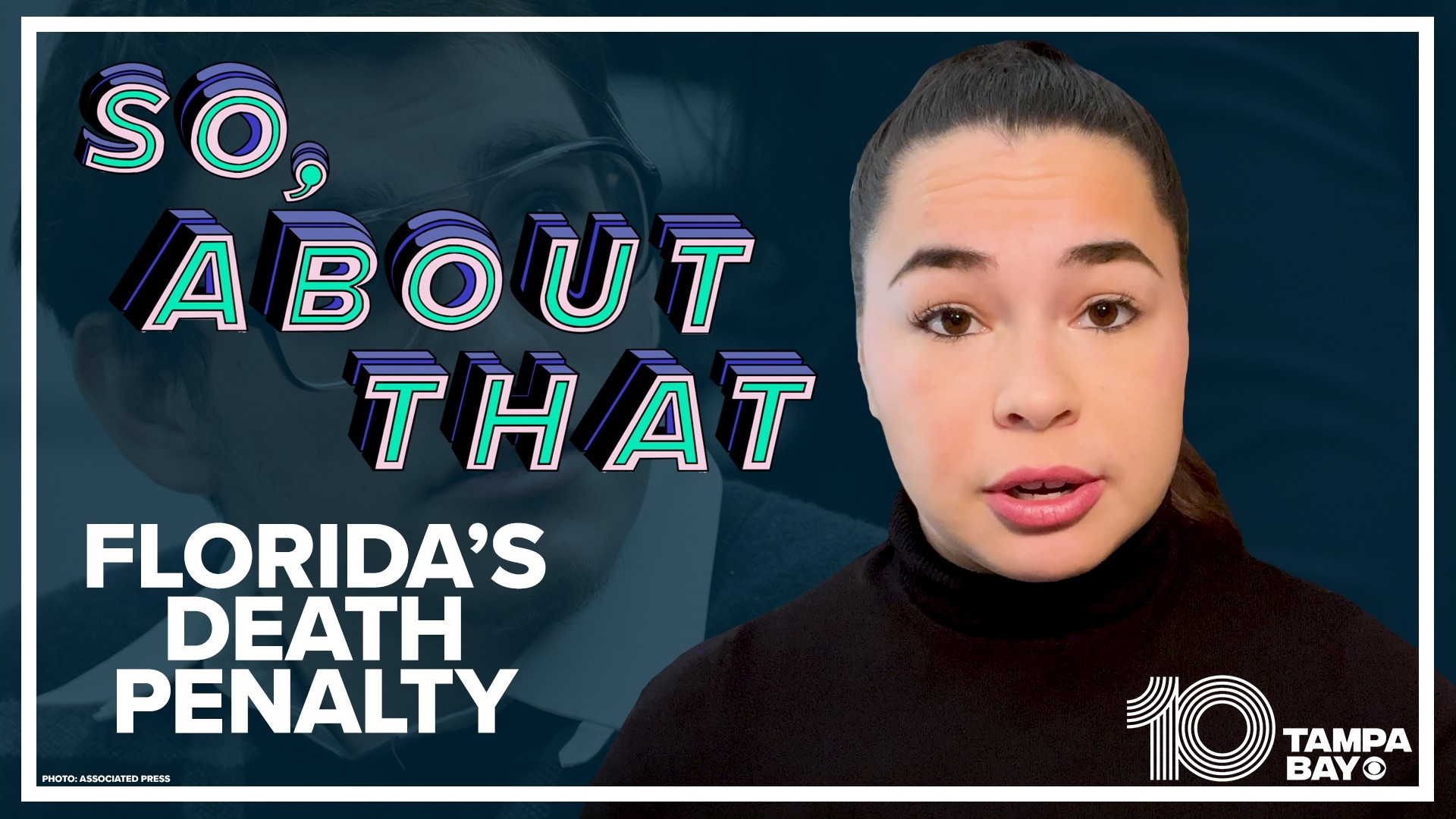PARKLAND, Fla. — It has been almost five years since 17 people were murdered by Nikolas Cruz at Marjory Stoneman Douglas High School in Parkland.
Just recently, a jury spared Cruz’s life by not recommending the death penalty as his sentence. This verdict was obviously very emotional for the victim’s families, community members and people watching his trial unfold.
Why wasn’t the death penalty recommended for Cruz? And if death wasn’t the appropriate sentence for him, when is the death penalty the answer?
Criminal defense attorney Craig Whisenhunt, who assisted in the jury selection process for the Cruz case, says sentencing someone to death is far more complicated than many people realize.
“There are rare and exceptional cases maybe where this is the only appropriate punishment. This was a heartbreaking case every way you look at it, for everybody involved,” Whisenhunt said.
In Cruz’s case, jurors had to consider if his actions met any of the “aggravating factors” that are considered when sentencing the death penalty. Some of those factors include if the murders were especially heinous, atrocious, or cruel, or if it was committed in a cold, calculated and premeditated manner. In this situation, the jury agreed that Cruz had met these factors.
But, this is where it gets complicated. There can be mitigating circumstances that the jurors have to consider.
One of the arguments for the defense was that Cruz’s birth mother heavily drank and left him with fetal alcohol spectrum disorder. Health experts say this can cause brain dysfunctions that led Cruz to have erratic and sometimes violent behavior.
Having any sort of mental or physical illness doesn’t mean Cruz would be automatically spared from death. But, it does mean that jurors can decide if these circumstances are enough to override those aggravating factors.
“It is entirely based upon their own opinion of them. Virtually anything can be a mitigating factor. There is a specific list of the aggravating factors but virtually anything conceivably can be a mitigating factor. And how much a particular factor weighs on them is personal,” Whisenhunt explained.
That means every juror has to agree with the death penalty for it to be recommended as the sentence.
But, the law wasn’t always written like this.
In 2017, Florida adopted a new sentencing law requiring that jurors unanimously find any aggravating circumstances and they all must recommend the death penalty. It only takes one juror to vote in favor of life to spare a defendant. For decades, it only took a simple majority of jurors, or 7 out of the 12 to recommend the death penalty.
Today, Alabama is the only state that requires a simple majority to impose a death sentence.
Under the reforms in Florida, judges would also be prevented from overriding a jury’s recommendation of a life sentence. So, in this situation, three jurors said they could not recommend the death penalty due to those mitigating circumstances. Cruz will be sentenced to life in prison, and there isn’t much more a judge can do.
Justice looks different for everyone. No matter how you feel about the sentencing outcome in the Parkland shooting, this case may spur a conversation about the death penalty and when it should be imposed, if at all.
Do you have any questions about the Tampa Bay area, or maybe just why things are the way they are? You can connect with Katie by emailing her at mjones@10tampabay.com or following her on Twitter.

